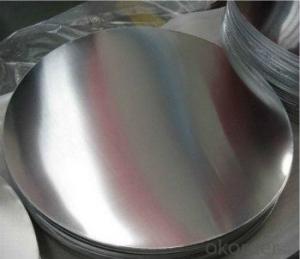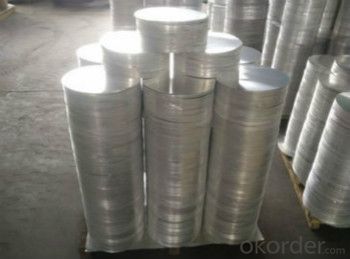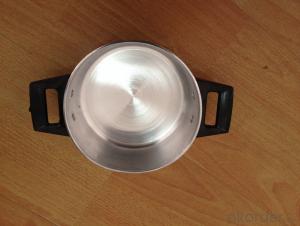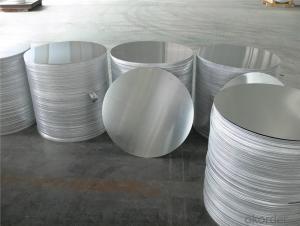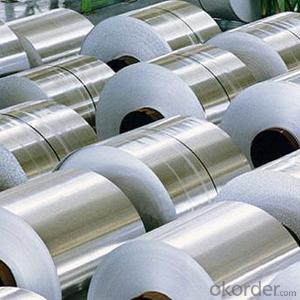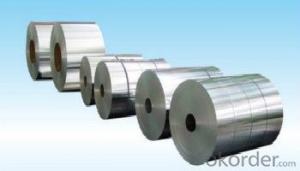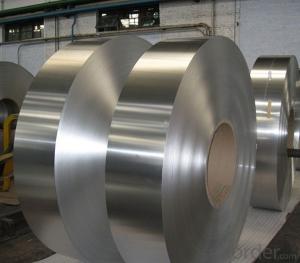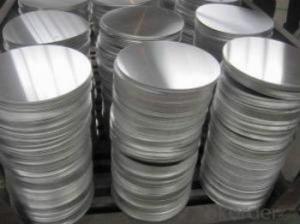Aluminum Steel Coil - Hot Rolled Aluminum Circle Alloy AA3003 H16
- Loading Port:
- Shanghai
- Payment Terms:
- TT OR LC
- Min Order Qty:
- 2 m.t.
- Supply Capability:
- 2000 m.t./month
OKorder Service Pledge
OKorder Financial Service
You Might Also Like
Specification
1. Structure of DC Aluminium in Coil Form for making Aluminium Circle Description
DC Aluminium in Coil Form for making Aluminium Circle is one semi-finished aluminium material. This coil can be rolled down to aluminium coil,sheet,circle ect. The alloy AA1050 is widly used in building, industry ect. Its weight is much lower than steel. So many customers choosed aluminium material instead of steel.
2. Feature of DC Aluminium in Coil Form for making Aluminium Circle
Surfact Quality :
Be free from Oil Stain, Dent, Inclusion, Scratches, Stain, Oxide Dicoloration, Breaks, Corrosion, Roll Marks, Dirt Streaks and other defect which will interfere with use,
Mechenical Property:
Chemical Composite and Mechanical Property
3. Image of DC Aluminium in Coil Form for making Aluminium Circle
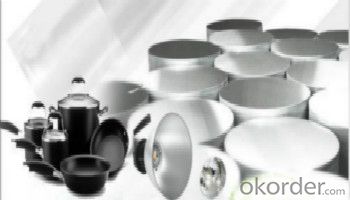
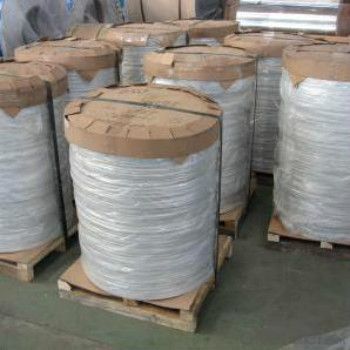
4. Specification of DC Aluminium in Coil Form for making Aluminium Circle
Aluminum Coil/Sheet | |
Main Specification | |
Alloy | AA1xxx (AA1050, AA1060, AA1070, AA1100 etc.) |
AA3xxx (AA3003, AA3004, AA3005, AA3105 etc.) | |
AA5xxx, AA6XXX (AA5052,AA5083, AA5754, AA6061, AA6062 etc.) | |
AA8xxx(AA8011, AA8006 etc.) | |
Temper | H14,H16, H18, H22, H24, H26, H32,O/F, T4, T6, T651 |
Thickmess | 0.01mm-100mm |
Width | 30mm-1700mm |
Standard | GB/T 3880-2006/ASTM |
Special specification is available on customer's requirement | |
5. FAQ
1) What is the delivery time?
Depends on actual order, around 20 to 35 days
2) What is the QC system:
We have QC staff of 20 persons and advanced equipment, each production is with MTC traced from Aluminum ingot lot.
3) What market do you mainly sell to?
Australia, America, Asia, Middle East, Western Europe, Africa etc
4)What about payment term?
30% T/T in advance, balance against B/L COPY or 100% L/C AT SIGHT.
- Q: Pretty please can someone show me the steps on how to do this one?Calculate the mass in grams of iodine (I2) that will react completely with 43.7 g of aluminum (Al) to form aluminum iodide
- Aluminum Iodide is AlI3 - one aluminum atom bonded to three Iodine atoms. Look up the atomic weight of Aluminum. Look up the atomic weight of Iodine. Al / 43.7g =3 X Iodine / mass Mass of Iodine required = 43.7 X Atomic weight of Iodine X 3 / Atomic weight of Aluminum
- Q: This question seeks to understand the environmental impact of discarded aluminum coils.
- <p>Discarded aluminum coils can have significant environmental impacts. They contribute to landfill waste and can potentially leach harmful substances into the soil and water if not properly managed. Aluminum production is energy-intensive, so recycling discarded coils reduces the demand for raw materials and conserves energy. However, if left in the environment, aluminum can also contribute to pollution and disrupt ecosystems. Proper recycling and disposal methods are crucial to mitigate these effects and promote sustainability.</p>
- Q: What is the hardness of aluminum coils?
- The hardness of aluminum coils can vary depending on a few factors such as the specific alloy used and the tempering process applied. Generally, aluminum coils have a relatively low hardness compared to other metals. Aluminum is known for its lightweight and malleable properties, making it easy to bend and shape. However, through various heat treatment processes like annealing or cold working, the hardness of aluminum coils can be increased to meet specific requirements. It is important to note that the hardness of aluminum coils may also vary depending on the intended application and the desired level of strength and durability.
- Q: Can aluminum coils be fabricated or machined?
- Yes, aluminum coils can be fabricated or machined. They can be cut, shaped, and formed into desired shapes or sizes using various fabrication techniques such as cutting, bending, stamping, or welding. Additionally, machining processes like milling, drilling, or turning can be used to remove excess material and create intricate designs or features on aluminum coils.
- Q: Aluminum is a metal and nitrate (nitrogen) is a non metal so shouldn't they form an ionic bond and not a covalnt bond? And if it were an ionic bond wouldn't it be called aluminum mononitrate? But it is a covalnt bond (thus a molecular bond and so there is no mono in the name). Pleas help I'm very confused!
- Aluminum okorder
- Q: Are aluminum coils more cost-effective compared to other materials like copper?
- Yes, aluminum coils are generally more cost-effective compared to copper coils. Aluminum is cheaper and more abundant than copper, which makes it a more affordable option for various applications. Additionally, aluminum coils require less maintenance and have a longer lifespan, reducing overall costs in the long run.
- Q: ok me and my father are trying to make thermite. we have the iron oxide but the aluminum we only have paste and i was wondering would it work the same as if we had the powder.and if it is differnt will it work for the thermite and what will it take to light it.
- How To Make Thermite
- Q: What are the typical production volumes for aluminum coil manufacturers?
- Aluminum coil manufacturers' production volumes can vary depending on factors like the size of the manufacturer, market demand, and production capacity. Generally, these manufacturers produce large quantities of coils to meet the needs of different industries. Some manufacturers produce a few hundred tons of aluminum coils per month, while others with larger production capacities can produce thousands of tons. The specific requirements of customers also influence production volumes, as manufacturers customize their production to meet customers' demands. Industries like construction, automotive, packaging, and aerospace have high demand for aluminum coils, leading to increased production volumes. Manufacturers can also produce various sizes and thicknesses of aluminum coils, further expanding their production volumes to cater to diverse market needs. It is important to consider that production volumes for aluminum coil manufacturers can fluctuate based on market conditions, economic factors, and industry trends. Manufacturers continually work towards optimizing their production processes and capacities to efficiently meet demand while maintaining high-quality standards.
- Q: does anyone know any ANTI-PERSPIRANTS that don't have any harmful chemicals such as aluminum chloride? I need something that makes you not sweat but I don't want bad chemicals in it!
- If Excessive sweating is your problem you'll find here very good tips: About 2%-3% of the general population experience excessive sweating a condition called hyperhidrosis which can occur with or without a trigger.
Send your message to us
Aluminum Steel Coil - Hot Rolled Aluminum Circle Alloy AA3003 H16
- Loading Port:
- Shanghai
- Payment Terms:
- TT OR LC
- Min Order Qty:
- 2 m.t.
- Supply Capability:
- 2000 m.t./month
OKorder Service Pledge
OKorder Financial Service
Similar products
Hot products
Hot Searches
Related keywords
